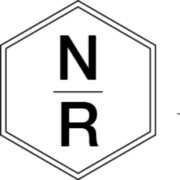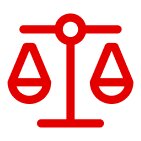Best Wrongful Termination Lawyers in Argentina
Share your needs with us, get contacted by law firms.
Free. Takes 2 min.
Or refine your search by selecting a city:
List of the best lawyers in Argentina
About Wrongful Termination Law in Argentina
In Argentina, wrongful termination, also known as "despido injustificado," refers to the unlawful dismissal of an employee without just cause. The Argentine labor laws are primarily governed by the Employment Contract Law (Ley de Contrato de Trabajo) and the National Employment Law, which provide a comprehensive framework to protect employee rights and ensure fair working conditions. The law mandates that dismissals should always have a justified cause. If not, employees are entitled to receive compensation, which may include severance pay, lost wages, and other benefits.
Why You May Need a Lawyer
There are several reasons why seeking legal advice for wrongful termination might be necessary. Here are some common situations:
- If you believe you were fired without a valid reason.
- When you are not provided with the necessary severance pay or notice period as required by law.
- If you feel that the termination was a result of discrimination or another unlawful practice.
- When the terms of a termination agreement are unclear or unfair.
- If the employer retaliates against you for exercising your rights or reporting misconduct.
- To negotiate a settlement or navigate through arbitration and mediation processes.
Local Laws Overview
The Argentine legal system provides extensive protections for workers. Here are some key aspects relevant to wrongful termination:
- Just Cause Requirement: Dismissal must be based on legitimate grounds such as misconduct or a breach of contract. Otherwise, it is considered unjustified.
- Severance Pay: In cases of unjustified dismissal, employees are generally entitled to severance pay calculated based on their salary and years of service.
- Advance Notice: Employers are typically required to provide notice of termination. The duration of the notice depends on the employee's length of service.
- Protection Against Discrimination: Terminations cannot be based on discrimination due to race, gender, age, religion, or other protected characteristics.
- Collective Bargaining Agreements: Additional protections may be provided under collective bargaining agreements applicable to various sectors.
Frequently Asked Questions
1. What constitutes wrongful termination in Argentina?
Wrongful termination occurs when an employee is dismissed without a legal and justified cause, contrary to the protections provided by the Argentine labor laws.
2. How is severance pay calculated in wrongful termination cases?
Severance pay is typically based on the employee's last gross salary and the years of service with the employer. The standard formula multiplies one month's salary by the number of years worked, among other factors.
3. What should I do if I suspect my termination was discriminatory?
If you believe your dismissal was based on discrimination, you should seek legal advice immediately. An attorney can help you gather evidence and file a complaint through the proper channels.
4. Can an employer fire an employee for reporting misconduct?
Firing an employee in retaliation for reporting misconduct is illegal. Employees should work with a lawyer to understand their rights and potentially seek damages.
5. How long do I have to file a claim for wrongful termination?
Claims must be filed within a set time limit known as the statute of limitations, which can vary. Consulting with a lawyer promptly is advisable to ensure your claim is filed on time.
6. Can work performance issues be considered just cause for termination?
Yes, but the employer must provide evidence of performance issues and document attempts to address them before termination can be justified.
7. Are oral termination notices legally binding?
While oral notices can be valid, it is recommended for both parties to have a written record to avoid disputes regarding the terms and timing of the termination.
8. Can I negotiate my severance package?
Yes, negotiations are possible, and a lawyer can assist in securing a fair settlement that covers potential entitlements beyond standard severance pay.
9. Does the size of the company affect my rights in a wrongful termination case?
Generally, wrongful termination rights apply regardless of company size, although specific regulations may vary slightly for small businesses.
10. Can I be reinstated after a wrongful termination?
Reinstatement is possible but not always practical. It often depends on the court's decision and whether both parties can agree to resume the employment relationship.
Additional Resources
For further assistance, consider reaching out to the following resources:
- Ministry of Labor, Employment and Social Security: The Argentine government body responsible for labor issues.
- Trade Unions: Many sectors have specific trade unions that offer support and legal counsel to their members.
- Legal Aid Societies: These organizations provide free or low-cost legal assistance for individuals unable to afford private legal counsel.
Next Steps
If you believe you have been wrongfully terminated, taking prompt action is crucial:
- Gather any documentation related to your employment and termination, including contracts, performance reviews, and communication with your employer.
- Contact a lawyer specializing in labor law to discuss your case and explore your options.
- Consider alternative dispute resolution methods such as mediation if appropriate.
- File a formal complaint within the statutory deadline if you decide to pursue legal action.
Seeking professional legal advice can significantly impact the outcome of your wrongful termination claim, ensuring that your rights are protected and you receive any compensation due.
Lawzana helps you find the best lawyers and law firms in Argentina through a curated and pre-screened list of qualified legal professionals. Our platform offers rankings and detailed profiles of attorneys and law firms, allowing you to compare based on practice areas, including Wrongful Termination, experience, and client feedback.
Each profile includes a description of the firm's areas of practice, client reviews, team members and partners, year of establishment, spoken languages, office locations, contact information, social media presence, and any published articles or resources. Most firms on our platform speak English and are experienced in both local and international legal matters.
Get a quote from top-rated law firms in Argentina — quickly, securely, and without unnecessary hassle.
Disclaimer:
The information provided on this page is for general informational purposes only and does not constitute legal advice. While we strive to ensure the accuracy and relevance of the content, legal information may change over time, and interpretations of the law can vary. You should always consult with a qualified legal professional for advice specific to your situation.
We disclaim all liability for actions taken or not taken based on the content of this page. If you believe any information is incorrect or outdated, please contact us, and we will review and update it where appropriate.
Browse wrongful termination law firms by city in Argentina
Refine your search by selecting a city.
















